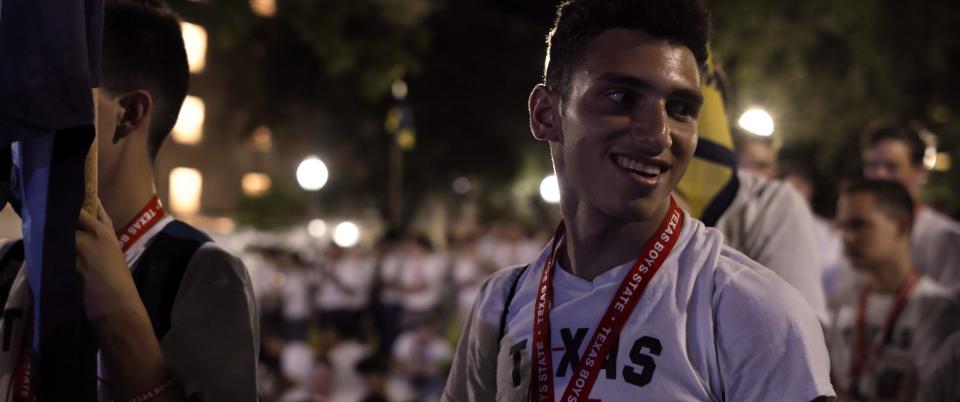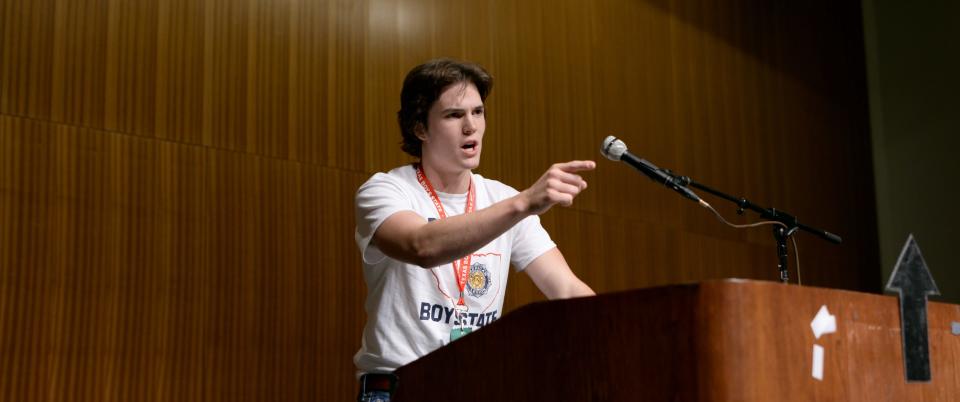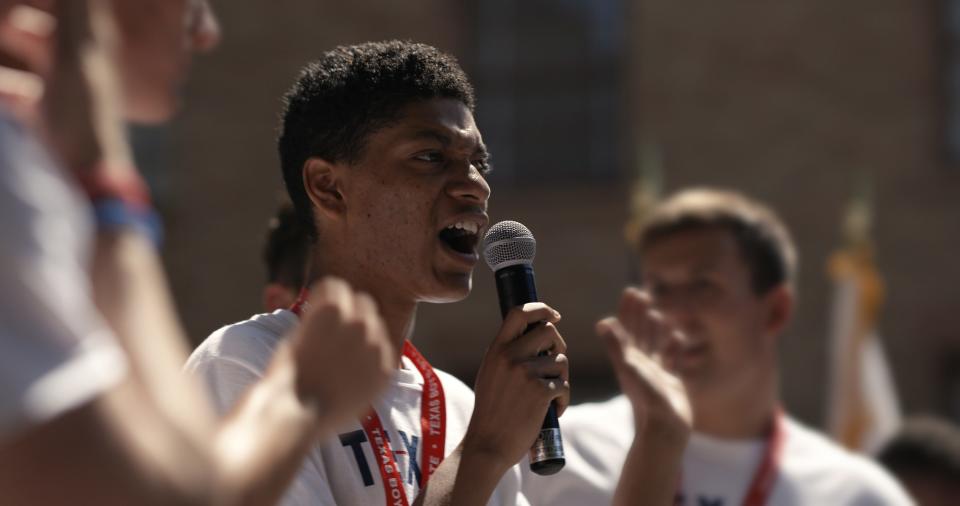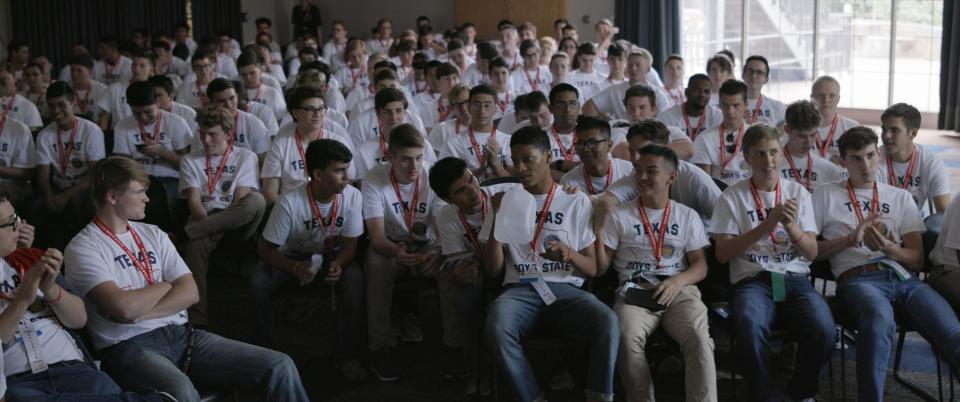'Boys State': What a group of Texas teens tells us about current politics in a new Apple TV+ documentary
Deep in the heart of Texas, a couple of San Francisco filmmakers found a microcosm of the American political system – and at least one kid you might vote for for president in 20 or so years.
The new documentary “Boys State” (streaming Friday on Apple TV+), directed by married duo Amanda McBaine and Jesse Moss, follows the 2018 edition of the weeklong annual program in which 1,100 Texas teenage boys convene in Austin, are split into two political parties (Nationalists and Federalists) and create their own mock state government. Amid a time of national division, the film shows how differing ideologies also polarize these disparate youngsters even while sowing seeds of hope and unity.
Kanye West: Rapper won't be on ballot in South Carolina after holding first rally in presidential bid

"The film is unvarnished, it's real (and) it doesn't sugarcoat the realities, which is finding consensus is hard but it's possible," Moss says. A female-centric follow-up film about Girls State could be in the cards, McBaine adds.
The directors discuss how the participants in “Boys State,” who debate hot-button issues such as guns, abortion and immigration, reflect our own modern politics.

A politician will say whatever he needs to for a vote
Robert MacDougall is a charismatic Nationalist jock who vies for governor, the highest elected office at Boys State, though his personal feelings about abortion don't jibe with that of a red-state crowd. So he puts his beliefs aside to lean into a pro-life position to help his gubernatorial campaign chances.
Most people expect politicians to lie, though you don’t normally see one come clean about it in front of a camera.
“There's the sort of onstage Robert who's fully in action (as) what he believes to be a politician, and then we see the sort of internal struggle and the kind of questions that he is asking himself,” McBaine says.
And when Robert says that you can’t get elected on what you believe in your heart, Moss says, “it’s kind of a shattering statement."

Social media is used as both a campaign tool and destructive weapon
Both parties are encouraged to campaign on social media, and almost instantly, anonymous Instagram accounts and memes pop up to spread disinformation about candidates on both sides.
Two Nationalist boys of color are targeted. Gubernatorial candidate Steven Garza, the quiet son of Mexican immigrants with a gift for oratory, is portrayed by opponents as anti-gun when it's discovered he organized a March For Our Lives event in Houston. And racist attacks are aimed at party chair René Otero, a recent Black transplant from Chicago who’s one of the fieriest voices at Boys State.
That's an aspect where “the simulation does accurately reflect adult reality,” Moss says. “You see both the best and the worst on display."
Moss adds that one of their motivations in making the film was to understand how ideologically fixed young people are and if “the political rhetoric of the moment has in a sense kind of contaminated the pool. We'll leave it to the viewers to make up their own minds, but you definitely see that threat.”

Like with the adult version, legislating can be a zoo, but it’s no joke
None of the main characters ended up in the Boys State legislature, yet the filmmakers did capture some interesting moments, like a case made for outlawing pineapple pizza. But there was also some serious law discussed, too: "They passed the universal background check bill in Texas," McBaine says. "That says something, that they're ready to have that conversation, for sure.”
It was a real surprise to Moss that “this hypermasculine space of machismo and aggression that you see in the beginning, actually, there's something deeper. There's intimacy and empathy and vulnerability, things that we maybe didn't initially expect to find.”

A unifying candidate crosses the aisle to get things done
While Steven – a fan of Bernie Sanders as well as Napoleon – takes Boys State by storm and becomes a surprise hit with his powerful campaign speeches, he also expresses the desire to win over his Nationalist base as well as appeal to Federalist voters. It’s a refreshing message at a time when the nation is split along party lines.
Those divisions have only become sharper in the two years since the directors started “Boys State,” and the humble and determined Steven successfully embodies the important “search for consensus and compromise,” Moss says. “When he's challenged on guns, he doesn't back down on his opinions, and he defends them, but he seems to find a way to speak to the boys in the room in a way that brings them to him."
Moss admired all of the boys' intelligence and ambitions, but with Steven, there was "this grace by which he conducted himself that helped us navigate this experience as filmmakers and to find a center that we could hold onto."
This article originally appeared on USA TODAY: 'Boys State' on Apple TV+: What Texas teens tell us about our politics
